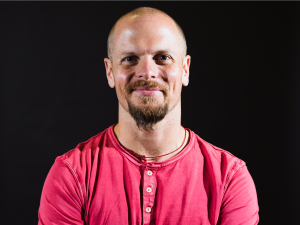“The question you should be asking isn’t, “What do I want?” or “What are my goals?” but “What would excite me?” ― Timothy Ferriss, The 4-Hour Workweek
If you are in the world of investment or self-improvement, chances are you’ve heard of Tim Ferriss, an American entrepreneur, investor, author, and lifestyle consultant probably best known for his award-winning book, The 4-Hour Workweek: Escape 9-5, Live Anywhere, and Join the New Rich, in which Ferriss proffers, “What we fear doing most is usually what we most need to do.” It is this attitude that made for a natural transition to the world of psychedelics for the 44-year old business guru.
Of course, having a bachelor’s degree in East Asian Studies doesn’t hurt either. But for Ferriss, it’s really about matching a mindset of limitless expectations and abundant excitement with actionable, productive steps to manifest the dreams inherent in these aspirations. However, Ferriss is neither quixotic nor an advocate of strict behaviorism. Instead, he is decidedly down-to-earth in his approach to his life goals as well as his relationships.

In a recent interview with Clay Skipper, a Staff Writer at GQ, Ferris confessed, “I am not focused on maximizing productivity because that begs the question: to what aim? I’m revisiting those questions and my answers to those questions during this time. That does not mean that I wake up every morning sitting on a Lotus flower, meditating for six hours and then producing masterworks as Isaac Newton and Shakespeare and others supposedly did during quarantine. That is decidedly not what is happening in my life day-to-day.”
In fact, Ferrisss admits to Skipper that when he is tired, often as a result of poor sleep, he becomes “a pouty three-year-old” who feels “the need to throw a tantrum.” Perhaps this unassuming vibe is what makes him so appealing.
And though Ferriss has certainly made his mark in the world of investment, founding BrainQUICKEN, an internet-based nutritional supplements business and an as an advisor and angel investor to startups such as StumbleUpon, Posterous, and Evernote, it’s the world of psychedelics that seem to light his philosophical flame, leading him to donate $100,000 in 2016 to help fund research at Johns Hopkins University School of Medicine investigating the effects of psilocybin on depression.
And this seed money yielded much fruit, with researchers concluding “. . . that two doses of the psychedelic substance psilocybin, given with supportive psychotherapy, produced rapid and large reductions in depressive symptoms, with most participants showing improvement and half of study participants achieving remission through the four-week follow-up.”

As is characteristic of his personal connection to everything Ferriss does, he admits, “I’m supporting this research because I’ve battled depression myself, I’ve seen incredible effects from psilocybin, and the preliminary research data are incredible.”
Ferriss is also, not surprisingly, a fan of using psychedelics not only to increase psychological awareness and productivity but also as a tool to surface distant memories, especially those of childhood. Ferriss captured this dynamic in his recent interview with Françoise Bourzat, in which she referenced a psychedelic-induced childhood memory about the textures of a table. In response, Ferriss said, “The hypermnesia, the opposite of amnesia, that incredibly detailed access to old memory is really remarkable. I had a very parallel experience of remembering the brown corduroy of this couch when I had to be an infant. But it was as clear as crystal, this couch that I then recalled from old childhood photographs and so on.”
These memories help Ferriss takes a decidedly reverent approach to the experiential aspects of using psychedelics and their power to transform a person’s life, including his own.
To this end, Ferriss credits psychedelics for a major direction change in his life in which he pivoted from pursuing money via a productivity model to a more spiritual, personally meaningful approach to living. As Ferriss put it, “. . .psychedelic compounds also provide a vehicle for stepping outside of your normal egoic self so that you can see the stories that govern your life more accurately. When otherwise trying to examine how these made-up narratives control your life, it’s a bit like trying to look at the lens of your eye by looking out through your eye: It’s not quite possible.”
However, Ferriss remains practical about applying psychedelics, keeping in line with Bourzat’s admonition that, “It is an insult to the potency of this inner work to not take the time to integrate what has been revealed.” Ferriss uses the following analogy to elucidate what steps are necessary to sustain the energy, insights, and motivations fostered during a psychedelic experience:
“The way I recommend people think about it is much like a shoulder reconstructive surgery. Surgery is really only part one. You want an incredible surgeon. You want the right tools for the job. You want it to be, in some sense, personalized to you. You want all of the right care. You want prep, and then you need to do the rehab. It doesn’t matter if you have the best PT in the world, if you don’t actually go to the office to do the rehab. Those are all very important for solidifying the structural changes that have taken place.”
At the end of the day, Ferriss recommends for people to scratch their proverbial itch, to find out what excites and motivates them, and then to take steps to explore that excitement with vim and vigor. Ultimately it is about being open to, and making conscious choices about, your physical journey and emotional evolution in life.
To that end, Ferriss believes you must tackle your demons head-on, with full awareness of the roles they play in holding you back. As Ferriss warns, “But you get to choose if you want to deal with it head-on in a proactive way. Or if you want to have these odd side effects leak out the edges, unbeknownst to you, subconsciously sabotaging you day to day.”
At Newsweed.com, we adhere to three simple principles: truth, balance, and relatability. Our articles, podcasts, and videos strive to present content in an accurate, fair, yet compelling and timely manner. We avoid pushing personal or ideological agendas because our only agenda is creating quality content for our audience, whom we are here to serve. That is why our motto is ”Rolling with the times, straining for the truth.”
Your opinion matters. Please share your thoughts in our survey so that Newsweed can better serve you.
Charles Bukowski, the Los Angeles beat poet that captured the depravity of American urban life once said, “There is something about writing poetry that brings a man close to the cliff’s edge.” Newsweed is proud to stand in solidarity and offer you a chance to get close to the cliff’s edge with our first Power of Poetry Contest. Are you a budding bard, a versatile versifier, a rhyming regaler? Do you march to the beat of iambic pentameter, or flow like a river with free verse? If so, here’s your opportunity to put your mad poetic chops to the test. Enter our poetry contest for bragging rights and an opportunity to win some cash!






